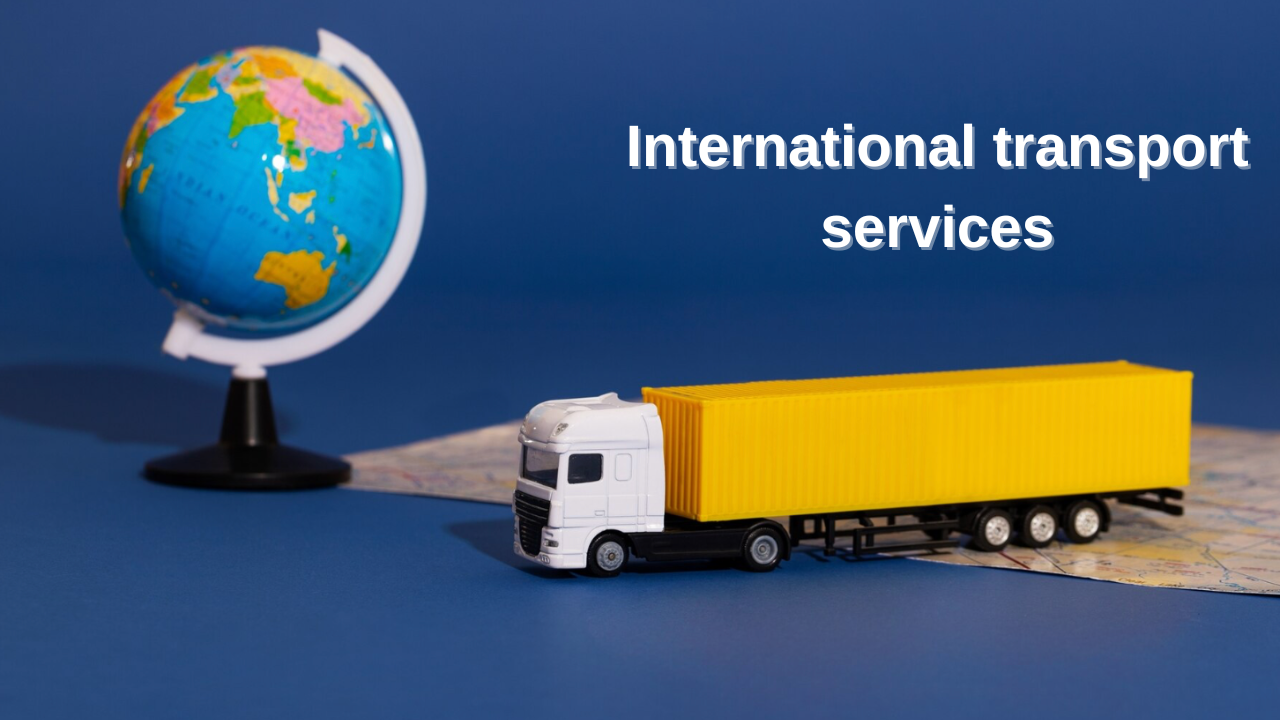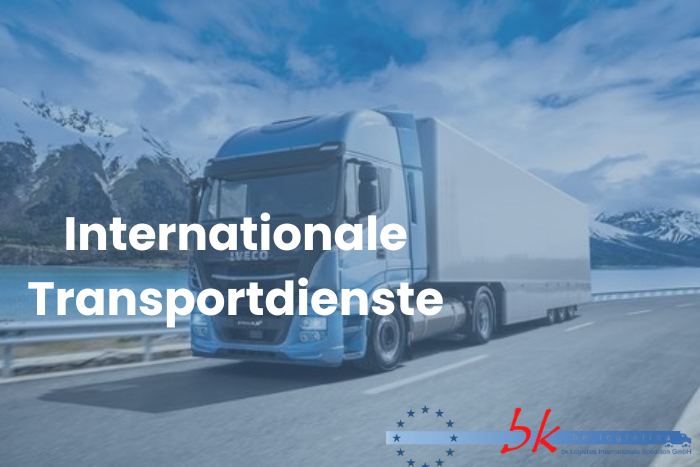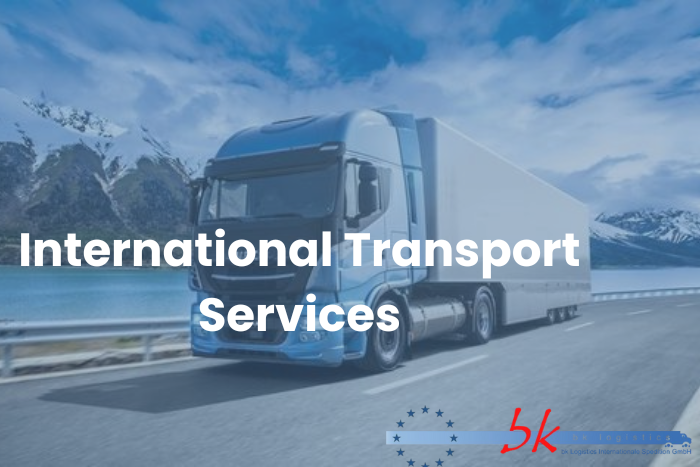News
International transportation services
What is international transportation?
International transportation is the transportation of goods and services to destinations outside a country's borders. This process consists of many steps and involves various means of transportation. As global trade increased, the importance of these services also increased. Companies resort to international transportation services to offer their products to a wider market.
This type of transportation includes not only transportation of physical products but also transportation of services. For example, a software company needs international transportation services to deliver the software it has developed to its customers all over the world. In this context, international transportation contributes to the strengthening of commercial relations and economic growth.
Transport types
The most important types of transportation in international transportation are land, sea, air and railway transportation. Each type of transportation has its own advantages and disadvantages. While land transportation offers flexibility and door-to-door delivery, sea transportation offers cost advantages for large cargo volumes. While air transportation is ideal for products that require fast delivery, rail transportation also offers an economical solution for long distances.
Road transport is generally the most commonly used method of transporting goods. This type of transportation, which is carried out using trucks or trailers, is frequently preferred in urban or intercity transportation. Choosing the appropriate transportation vehicle according to the type and urgency of the materials to be transported increases the efficiency of the transportation process.
Sea transportation is a preferred method, especially for large volume cargo. This type of transportation by ship plays an important role in intercontinental trade. Sea transportation is a cost-effective solution when transporting goods to remote locations. Delivery times may be longer than ground transportation.
Air transportation is the most effective solution when fast delivery is required. Airlines are especially preferred for transporting valuable or perishable products. The biggest advantage of air transportation is that the products reach their destination in a short time. This type of transportation is generally associated with higher costs.
Railway transportation offers an economical solution in long-distance transportation. It is generally preferred for transporting large volume loads. The disadvantage of railway transportation is that the route is limited and delays may occur from time to time.
Logistics processes
International transportation is part of a complex logistics process. This process includes planning, storage, packaging, transportation, customs clearance and distribution stages. Effective logistics management offers a great opportunity to reduce costs and increase customer satisfaction.
At the planning stage, it is important to determine the products to be transported, plan the route and select transportation vehicles. At this stage, the characteristics of the load, cost, time and safety factors should be taken into account. Proper planning will help prevent problems that may arise at any stage of the move.
While warehousing ensures that products are stored safely, packaging is also necessary to prevent damage to products. Proper storage of products saves time and money during the transportation process. Packaging is important to ensure that the products are not damaged and are easy to transport.
During the transportation phase, while the products are transported along the determined route, customs clearance procedures are mandatory when crossing international borders. The customs clearance process is an important step for the smooth functioning of import and export transactions. Timely customs clearance helps prevent delays.
During the distribution phase, products are ensured to reach their final destination. This stage is very important for customer satisfaction. Delivering products on time and in full strengthens customer relations.

The role of technology
In recent years, technology has revolutionized international transportation. Various software and automation systems are used to make logistics processes more efficient. Especially technologies such as artificial intelligence, data analysis and blockchain play an important role in the logistics industry.
Artificial intelligence and data analytics enable companies to save costs by forecasting demand and monitoring inventory levels. These technologies offer the opportunity to react quickly to customer needs. For example, software supported by artificial intelligence provides great convenience in stock management and demand forecasting. In this way, companies can avoid unnecessary costs.
Blockchain technology enables secure data exchange and makes supply chain processes transparent. Having products traceable at every stage helps prevent fraud. This increases reliability in the migration process and allows any problems to be resolved quickly. Customs problems, especially in international transportation, can be minimized with blockchain technology.
Mobile applications are an important tool to increase customer interaction and ensure information flow. Customers can instantly track where their products are. This increases customer satisfaction and enables companies to manage their processes more effectively.
Sustainability and environmental awareness
Nowadays, environmental awareness has become an important issue in international transportation. The transportation sector needs to adopt sustainable practices to reduce carbon emissions. The use of renewable energy sources, green logistics solutions and environmentally friendly packaging materials is becoming increasingly important in this context.
Logistics companies are taking measures to reduce the carbon footprint in transportation processes. This goal can be achieved with electric vehicles, alternative fuels and efficient transportation methods. In particular, the use of electric trucks and trucks reduces both costs and environmental impact.
Recycling and waste management of packaging materials play a very important role in reducing environmental impact. These practices help companies reduce costs and create an environmentally friendly image. Today, the concept of sustainability is not only a choice but also an obligation.
future trends
The international transportation industry is constantly developing and affected by new trends. The growth of e-commerce will require the logistics industry to develop faster and more effective solutions in the coming years. As the demand for fast delivery services increases, it becomes increasingly important for logistics companies to respond to this demand.
With the use of automation systems and robotic technologies, storage and transportation processes become more efficient. This will reduce costs by reducing human errors. In particular, the use of autonomous vehicles can lead to revolutionary changes in the transportation sector.
Data security and protection against cyber attacks will become increasingly important in the coming period. Shipping companies need to take increased security measures to protect customer information and shipping data.
customer satisfaction
Customer satisfaction is one of the most important elements in the international transportation industry. On-time delivery, product safety and customer communication are the cornerstones of this satisfaction. Taking customer feedback into account is a great opportunity to improve service quality.
Understanding customer needs and providing appropriate solutions creates a competitive advantage. Companies should offer personalized services to strengthen customer relationships. This increases customer loyalty and enables long-term relationships to be established.
Legal regulations in international transportation
International transportation is subject to various legal regulations. These regulations ensure that trade is safe and orderly. Trade agreements and international transportation agreements between countries play an important role.
Transportation companies must act in accordance with the rules of international law. Issues such as customs procedures, import and export documents, transportation insurance are important elements to be considered during international transportation. If these legal regulations are not complied with, various problems and delays may occur.
Globales Supply Chain Management
Global supply chain management is very important for effective international transportation. The supply chain includes all processes from the procurement of raw materials to the delivery of the final product to the customer. Effective management of each stage in this process allows reducing costs and increasing customer satisfaction.
Supply chain management is important in minimizing risks, managing supplier relationships and monitoring stock levels. Effective supply chain management gives companies a competitive advantage. By constantly reviewing and improving their supply chains, companies can respond quickly to market changes.
Product safety and standards
Product safety is an important issue in international transportation. The transported products must comply with certain standards. These standards ensure both product quality and consumer safety.
Transporting products that do not comply with safety standards can lead to legal problems and damage the reputation of companies. Labeling, packaging and storage of products must comply with safety standards. Correct control of these processes increases customer satisfaction.
Crisis management in transportation
Crisis management is the ability to respond to unexpected situations that may arise during the international transportation process. Situations such as natural disasters, political instability and epidemics can negatively affect transportation processes. Being prepared for such situations and reacting quickly increases the sustainability of companies.
Crisis management plans should be prepared in advance and reviewed regularly. These plans allow the development of strategies for various scenarios that the company may encounter. In crisis situations, fast and effective communication is of great importance in dealing with the situation.



